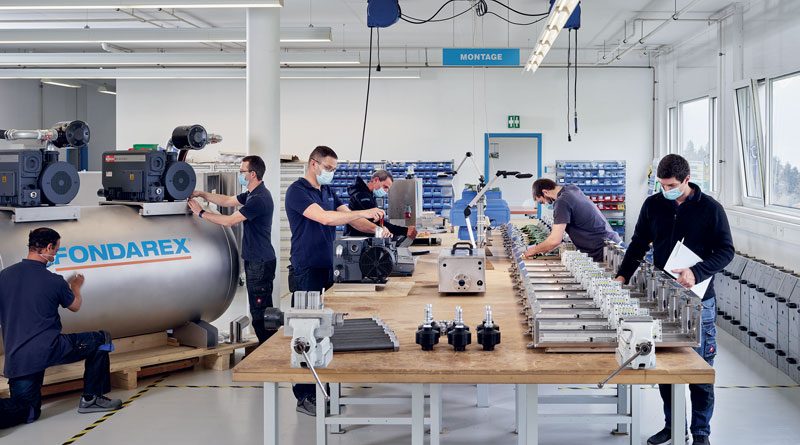Fondarex, Makes Vacuum Technology Accessible for Foundries of all Sizes
Access to cutting-edge technologies should not be a privilege reserved only for large, financially powerful companies. Dominik Baumgartner, CEO of Fondarex, explained this concept
75 years of history is a long time for any company, particularly in a highly competitive and constantly evolving sector. Founded in 1946, Fondarex SA, based in Switzerland near St-Légier (Montreux), is the pioneer and inventor of vacuum technology, which has been used ever since in die casting to eliminate atmospheric air during metal casting. Established as a foundry after the war, Fondarex manufactured die castings until 1978, using six presses of various sizes. The first vacuum systems were created only six years after the foundation, when the company decided that in order to exploit the full potential of the presses it was necessary to focus on products with high added value in terms of quality and performance. Fondarex therefore started to produce larger and larger components, thanks to the development of systems capable of eliminating air during the casting process in order to optimise the filling of the mould and improve the metallurgical properties of the casting. After discontinuing the production of die castings in 1978, Fondarex continued to develop vacuum systems and began selling them worldwide. All manufacturers of high quality castings had to equip themselves with vacuum systems if they wanted to increase their production and quality range. Today, the aim for Fondarex is to make this technology more and more advanced and accessible to every foundry, not only to large groups but to all companies, even small and medium-sized ones. A “democratic” vision of access to the most advanced technologies to stimulate the spread of the production of die castings for sophisticated applications. We talked about this with Dominik Baumgartner and Steve Schackemy, respectively CEO and Marketing Manager of Fondarex.
Which were the major trends in the design and on the market of die casting machinery during the last five years?
The die casting market in the last five years has been characterised by two main demands. The development of larger presses and the increase of automation during the production process. Regarding presses, a request to produce very large parts of the chassis, or even whole chassis, to reduce the number of components to be assembled came from a large electric car manufacturer. This was certainly a major revolution in car manufacturing and in the field of car chassis, a rather mature sector where innovation had not seen major developments for a long time. We can say that the first manufacturer to understand this request and to realise the first plant for the die casting of aluminium one-piece chassis was Idra. The advantages have been enormous in terms of reduction in the number of components, assembly times, and stronger and more performing structures. We believe that in the near future other car manufacturers will follow this path, and we believe that this trend is likely to last for a long time. It is only thanks to the efforts of dedicated design teams and their technological expertise that this result could be achieved. It is difficult to say what further developments this new construction technology will have, but we are sure that this will be the future of chassis construction for cars and beyond. As regards the second change which has occurred in recent years, the increase in automation and control systems is stimulating the return of the production of small and medium-sized die cast components to Europe from Asia countries after the Coronavirus crisis. It is not easy for European companies to be competitive with the Asia, but advanced automation is considerably improving the competitiveness of our companies. However, we think that the big leap forward in recent years has definitely been the creation of giant presses. Fondarex has also collaborated and rapidly developed machines capable of quickly extracting a greater quantity of air much closer to the die casting mould. Today we have equipment with six evacuation channels which we can integrate around the mould and we have invested time and energy in developing the evacuation process. We can also electronically regulate the air evacuation process. With the introduction of processes based on Industry 4.0 logic, we have created a new standard of controls which can record process data, a great benefit for our customers. We developed this type of technology not only for giant presses, but also for normal die casting plants. Our leadership contribution to the development of evacuation systems allowed us to create extremely reliable systems to enable foundries to keep their production process under control. During the current Covid-19 crisis, Fondarex has invested a lot of time and money to develop and rethink its products; the aim was to offer more advanced machinery at reasonable costs. We have now the possibility to propose machines at competitive price, while maintaining a high technological level. The new Fondarex Electric vacuum system is one of the result of our latest developments.
Which are your main markets?
Most of our customers are European, and initially Central Europe was our main market for a long time. Later on we also successfully entered the Eastern countries, especially Poland and the Czech Republic. In North America and Asia we also have several customers and numbers that are significant for us, and for this reason we are looking into expanding our presence in China and the USA, also in order to react to the fierce local competition. So far we have been present with sales offices, but this is not enough to vie against the low-cost competition, we will build up a local production site in Asia.
How are you organised in the Italian market?
We have a sales engineer, Maurizio Fuccelli, dedicated to the Italian market. Maurizio Fuccelli has been working for Fondarex for 10 years and is able to provide both technical and commercial support. With the assistance of Fondarex, in particular Janine Voegtli, Steve Schackemy and Franck Gigez, who are responsible for the Italian market, we are a team always ready to help our customers.
How did your company react and get through the Covid-19 crisis?
The Covid crisis did not generate any worrying reductions in turnover in 2020; basically, we almost maintained the previous year’s turnover. Today the recovery of the market, particularly in the automotive sector, allows us to look to the future with great optimism.

